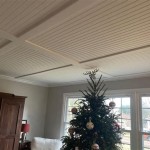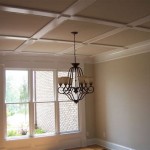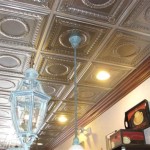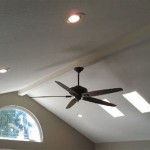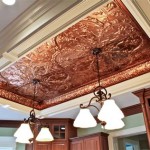Why Do Older Houses Have Higher Ceilings?
Step into an older house, and you'll often be greeted by soaring ceilings that seem to stretch towards the heavens. It's a striking architectural feature that adds a sense of grandeur and spaciousness. But why do older houses have such high ceilings? Let's explore the reasons behind this intriguing design choice.
1. Heat Regulation
In the days before central heating, homes relied on fireplaces and wood-burning stoves for warmth. High ceilings allowed the hot air to rise and circulate throughout the house, providing an even distribution of heat. The warm air pooled near the ceiling, keeping the living space below comfortable.
2. Ventilation
Before the advent of air conditioning, buildings needed to rely on natural ventilation to keep the air fresh and prevent stuffiness. High ceilings created a natural convection current, with warm air rising and drawing in cooler air from outside through windows and doors. This helped to circulate air and reduce the buildup of stale air.
3. Light and Space
High ceilings let in more natural light, creating a brighter and more airy atmosphere. The increased vertical space gave a sense of spaciousness and made rooms feel larger than they actually were. Tall windows allowed light to flood into the house, reducing the need for artificial lighting.
4. Social Status
In the Victorian era, high ceilings became a symbol of wealth and status. Grand homes with towering ceilings were a way for the wealthy to showcase their opulence and impress their guests. The height of a house's ceilings was often directly proportional to the owner's social standing.
5. Fire Safety
High ceilings provided a measure of fire safety in the days when candles and oil lamps were the primary sources of light. In the event of a fire, the flames tended to rise towards the ceiling, giving occupants more time to escape. Additionally, the large volume of air in a high-ceilinged room made it more difficult for a fire to spread rapidly.
6. Architectural Style
Certain architectural styles, such as Georgian, Victorian, and Gothic, were characterized by high ceilings. These styles originated in Europe, where grand homes with tall ceilings were common. When these styles were adopted in the United States, they brought with them the tradition of high ceilings.
7. Building Materials
The availability of building materials played a role in the prevalence of high ceilings in older houses. In the early days, timber was the primary building material, and logs were often cut to great lengths to create the supporting beams for high ceilings.
Conclusion
The high ceilings found in older houses were not merely a matter of aesthetics. They served important functional purposes, such as regulating heat, enhancing ventilation, admitting natural light, showcasing social status, and providing fire safety. These features have stood the test of time, and continue to add charm and character to historic homes today.

High Ceilings In Old Houses Looking For Documentation Page 2 The Historic District
Why Do Many Old Buildings Have Tall Ceilings If They Were Former Factories Converted To Condos I Understand But What About Houses Was This A Sign Of Wealth Quora
Why Are House Ceilings So Low In England Quora

Why Do Old Houses Have Tall Ceilings Solved

Why Do Old Houses Have High Ceilings Village Cottage

6 Things I Love About 1920s Houses House And Hammer

How To Take Advantage Of High Ceilings In Renovations Archdaily

Here S The Standard Ceiling Height For Every Type Of Bob Vila

The Ultimate Guide To Vaulted Ceilings Pros Cons And Inspiration

Here S The Standard Ceiling Height For Every Type Of Bob Vila
Related Posts

